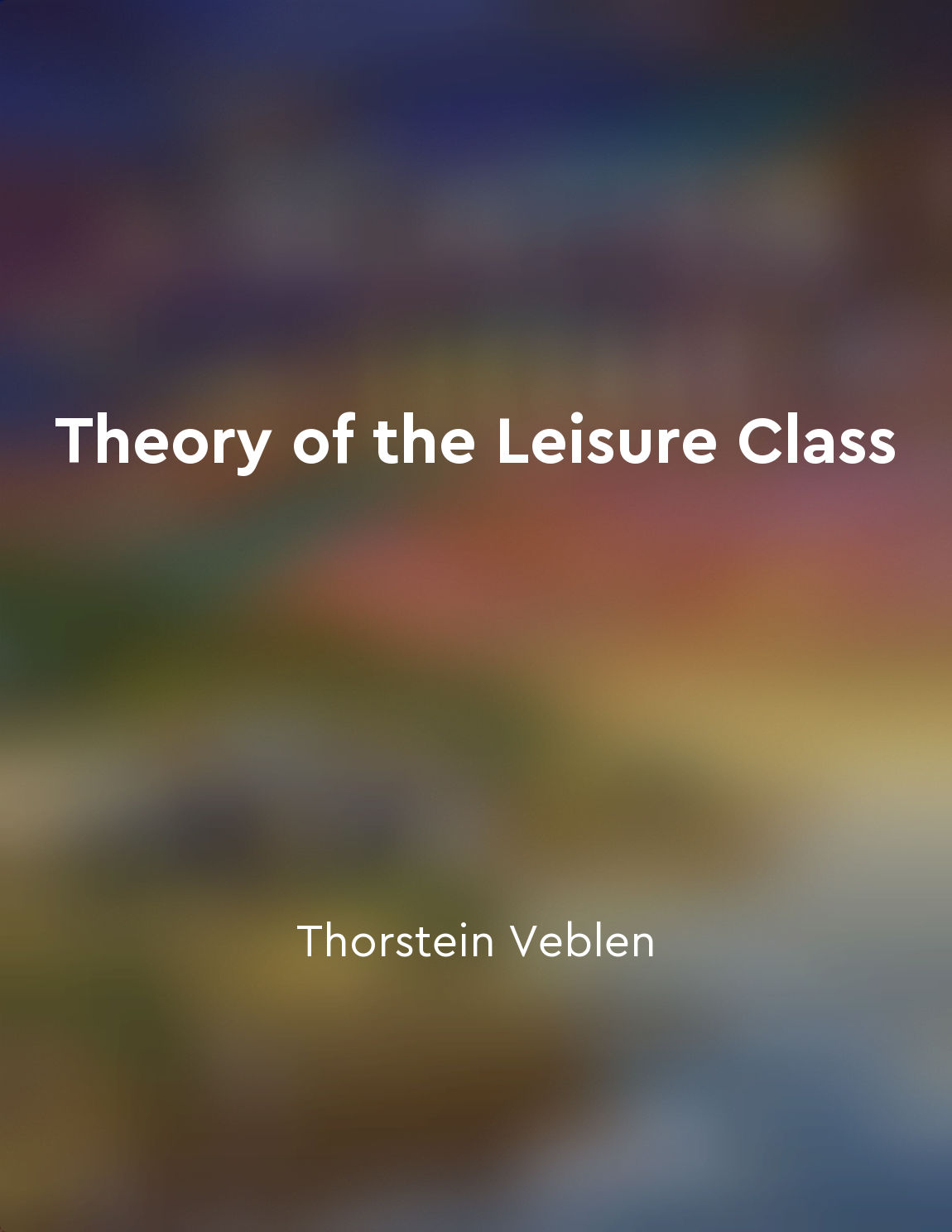Income distribution impacts overall economic health from "summary" of Theory of Economic Growth by W. Arthur Lewis
The distribution of income in a society plays a crucial role in shaping its economic health. When income is concentrated in the hands of a few individuals or groups, it can lead to a host of negative consequences that can hinder overall economic development. Unequal income distribution can create social tensions and unrest, leading to political instability and economic uncertainty. This can discourage investment and hinder economic growth, as investors may be wary of putting their capital into an unstable environment. Moreover, unequal income distribution can also limit the purchasing power of the majority of the population. When a large portion of the population is unable to afford basic goods and services, it can lead to a decrease in demand for goods and services, which can in turn slow down economic growth. In contrast, a more equitable distribution of income can help to boost consumer spending, driving economic growth and creating a more prosperous society. Furthermore, unequal income distribution can also lead to disparities in access to education and healthcare. When income is unequally distributed, those at the bottom of the income ladder may not have access to quality education and healthcare, which can hinder their ability to contribute to the economy. This can result in a loss of human capital, as individuals who are unable to reach their full potential due to lack of access to education and healthcare are not able to contribute fully to the economy. On the other hand, a more equitable distribution of income can help to ensure that all members of society have access to education and healthcare, allowing them to reach their full potential and contribute to the economy. This can lead to a more skilled and productive workforce, driving economic growth and creating a more prosperous society.- The distribution of income in a society has far-reaching implications for its economic health. An unequal distribution of income can lead to social unrest, decreased consumer demand, and disparities in access to education and healthcare, all of which can hinder economic development. On the other hand, a more equitable distribution of income can lead to increased consumer spending, a more skilled workforce, and overall economic prosperity.
Similar Posts
Privileged individuals often overlook systemic issues in their pursuit of change
The powerful, the well-connected, the privileged—these are the ones who often set the agenda for change in our society. They ar...
Opportunity cost refers to the value of what is given up in order to choose something else
Opportunity cost is a fundamental concept in economics that plays a crucial role in decision-making. It refers to the value of ...
Independence brought about challenges of nationbuilding and identity
Independence from colonial rule in 1947 marked a significant turning point in the history of India. The newfound freedom brough...
Comparative advantage explains the benefits of trade
Comparative advantage is a fundamental concept in economics that helps us understand why trade is beneficial for all parties in...
Ancient civilizations shaped human history
Throughout the course of human history, ancient civilizations have played a pivotal role in shaping the world as we know it tod...
The Sepoy Mutiny signaled the start of the Indian independence struggle
The Sepoy Mutiny, also known as the Indian Rebellion of 1857, was a significant event in the history of India. It was a widespr...
Policies can alleviate inequality
Policies play a crucial role in shaping the distribution of income and wealth in society. By implementing certain measures, gov...
The Maurya dynasty unified India under Chandragupta
The Maurya dynasty, one of the most powerful empires in ancient India, played a crucial role in the unification of the Indian s...

Economic freedom equals political freedom
The relationship between economic freedom and political freedom is a fundamental one. Both are essential for individual liberty...

Predatory Lending exploits Lower Classes
The practice of lending money at exorbitant rates to individuals of lower social standing is a manifestation of the parasitic r...

